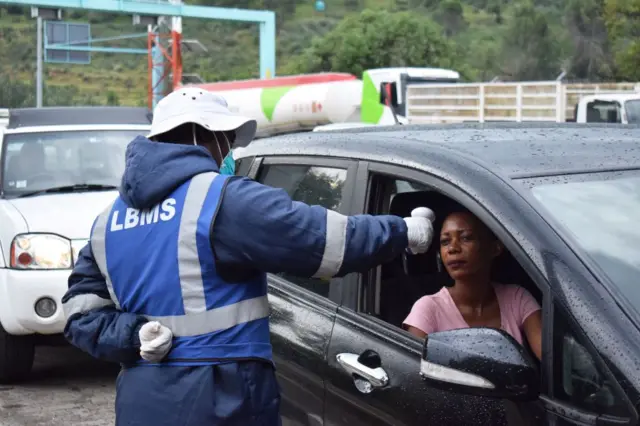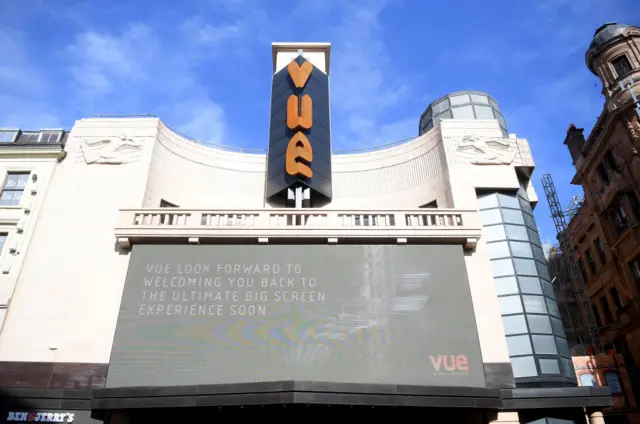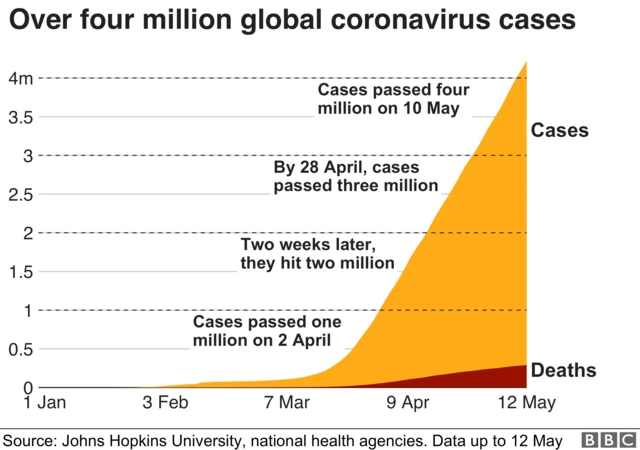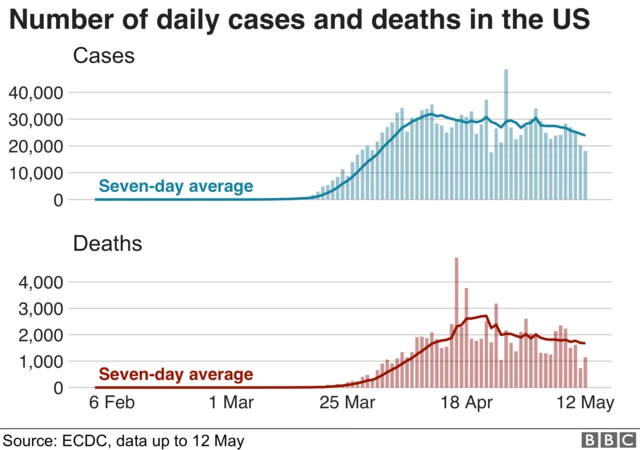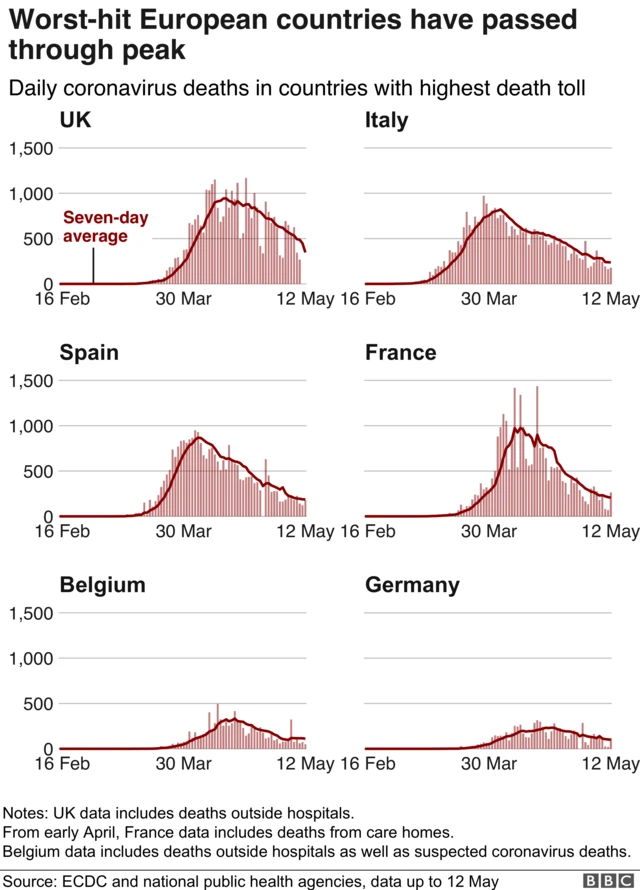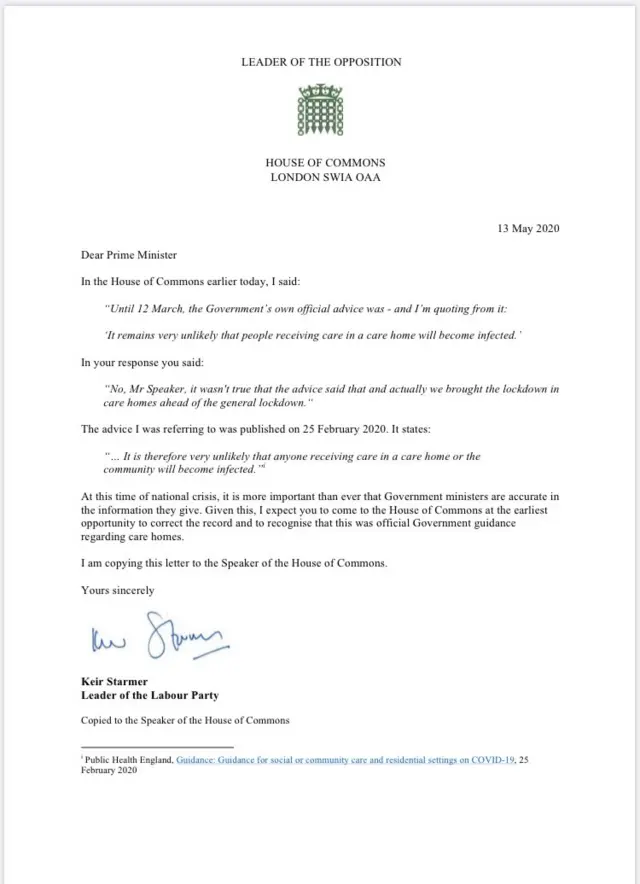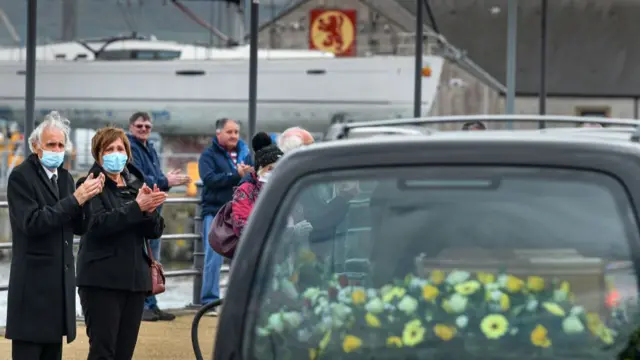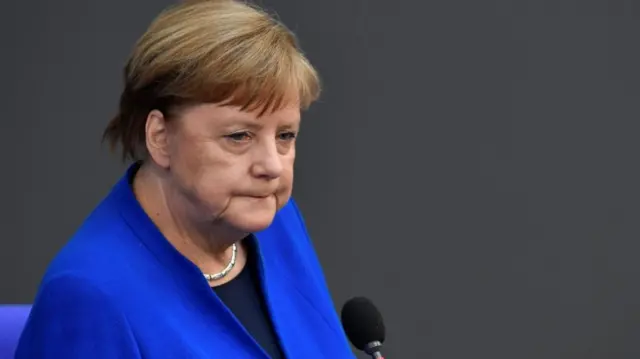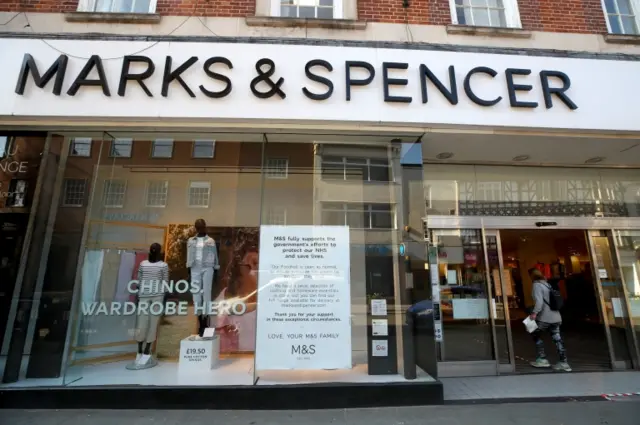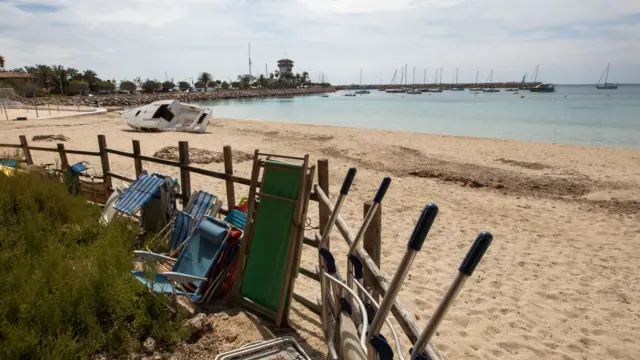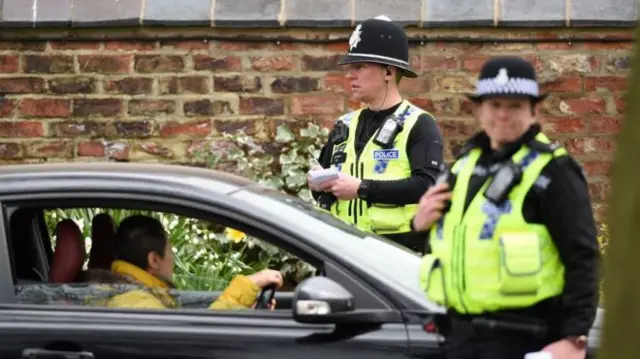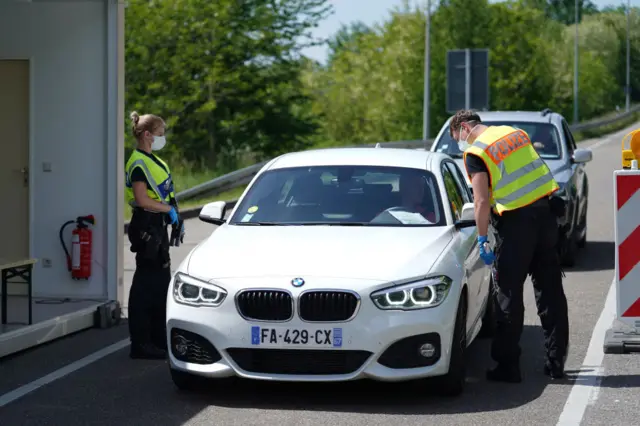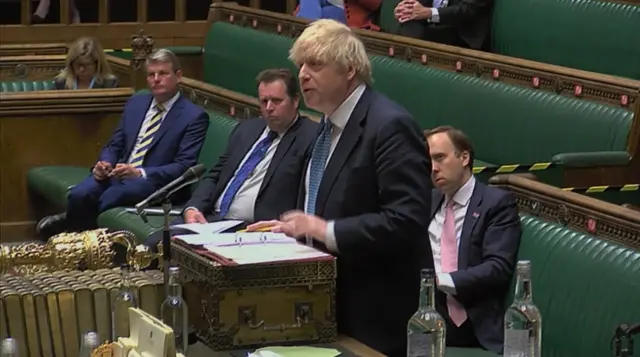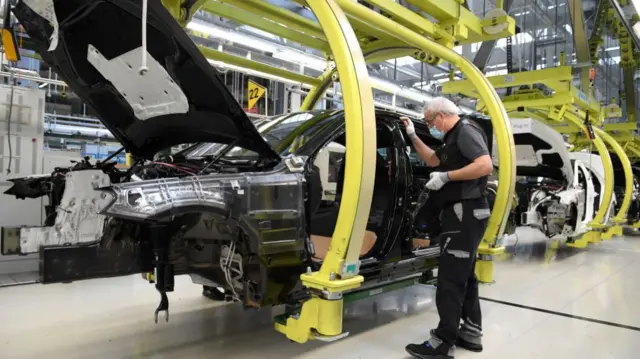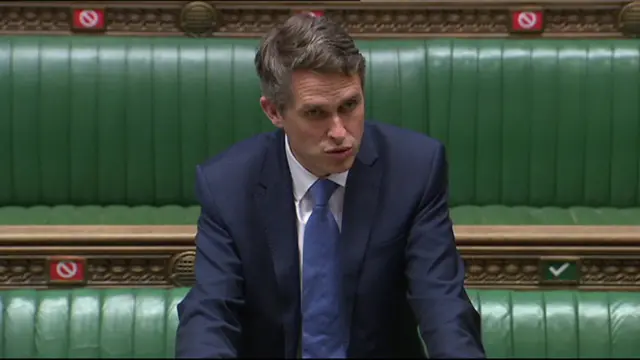'Work ongoing' over UK parliament's returnpublished at 15:14 BST 13 May 2020
 Jonathan Blake
Jonathan Blake
BBC political correspondent
Downing Street says the government is working with Houses of Parliament authorities "to ensure Parliament can operate in a way that is safe for MPs and house staff".
The prime minister's spokesman said: "It’s vital that Parliament can continue to scrutinise the government and legislate to support the coronavirus response.
"As you’ll know the existing temporary arrangements limit some of these functions in particular regard to legislation and that's why work is ongoing... to carefully move back to more ordinary business."
Asked whether the government was concerned about Scottish MPs not being able to travel to Westminster, the spokesman said that was "a matter for them".
The comments come after Commons Leader Jacob Rees-Mogg said on Tuesday that he wants MPs to return to Parliament in the next few weeks to "set an example".

